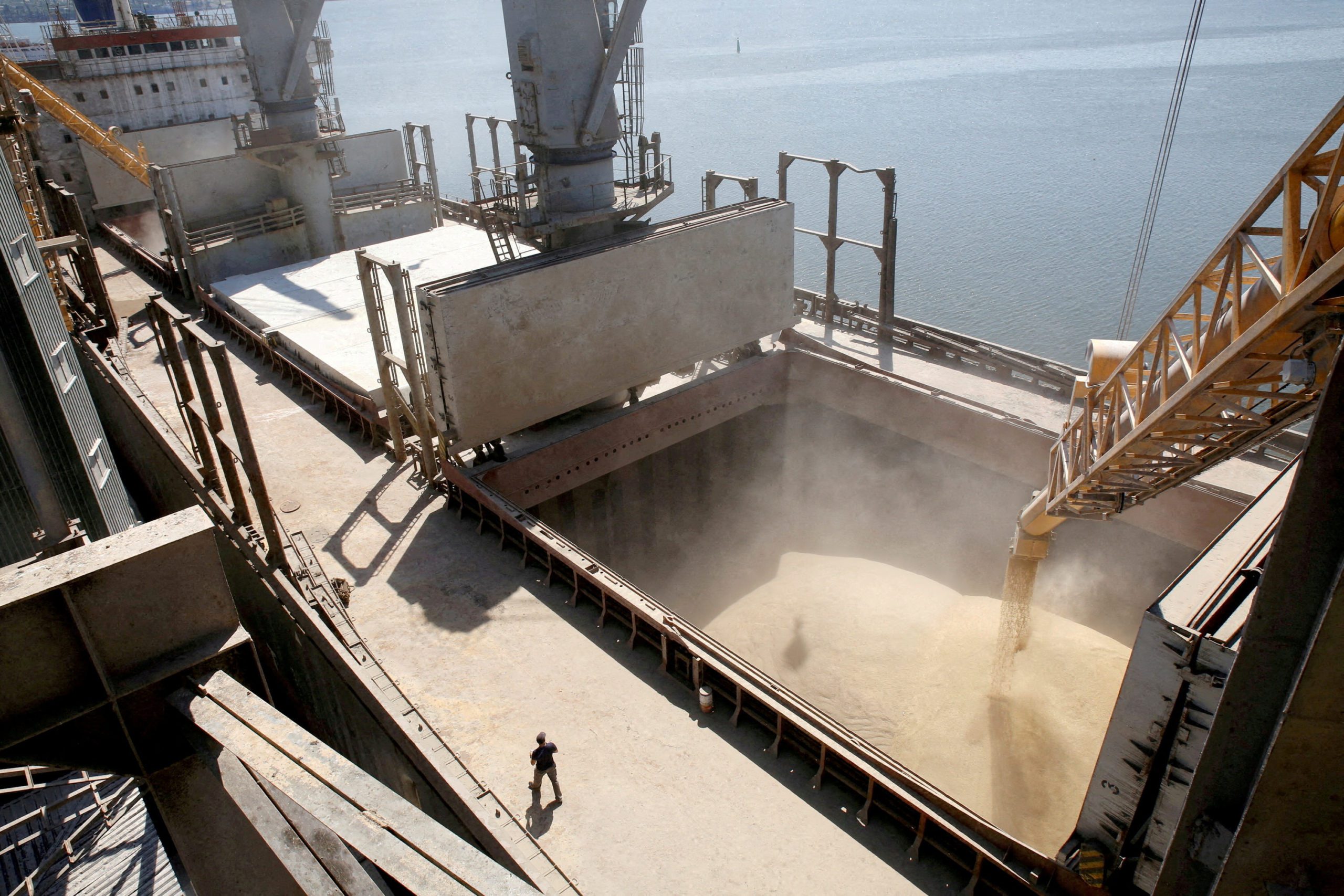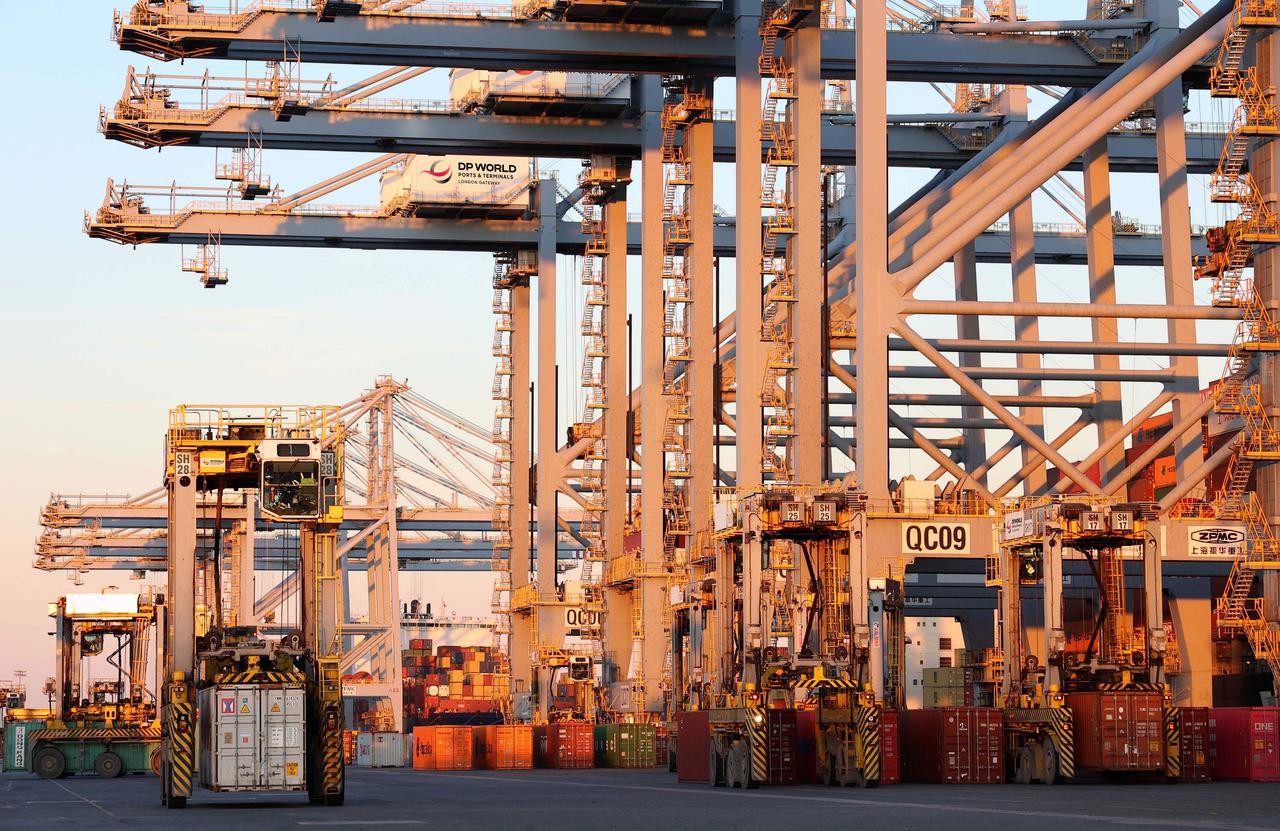CHICAGO, June 13 (Reuters) – U.S. grains merchant Bunge and Glencore-backed Viterra are merging to create an agricultural trading giant worth about $34 billion including debt, the companies said on Tuesday, in a deal that will likely draw close regulatory scrutiny.
The deal brings the combined company closer in global scale to leading rivals Archer-Daniels-Midland and Cargill, valuing Bunge and Viterra at about $17 billion each. Bunge shareholders, however, will own about 70% of the company, because Bunge will pay for a significant chunk of the deal with cash.
Shares of Bunge were up 0.3 percent after falling initially.
Under the deal, Viterra shareholders will get about 65.6 million shares of Bunge stock, carrying a value of about $6.2 billion, and about $2 billion in cash.
Bunge will also assume $9.8 billion of Viterra’s debt, according to a joint statement.
Bunge is already the world’s largest oilseed processor and analysts said it and Viterra’s crushing businesses could face regulatory scrutiny in Canada and Argentina.
Last year, Bunge was the largest corn and soybean exporter from Brazil, the world’s top source of the staple crops for making animal feed and biofuels, according to data from shipping agent Cargonave. Viterra was the third-largest corn exporter and No. 7 soybean shipper.
Combined, the companies accounted for about 23.7% of Brazil corn exports in 2022 and 20.9% of Brazil soybean exports, Cargonave data showed.
In the United States, Viterra’s business of buying and selling grain expanded via its purchase of Gavilon last year. The merger would enhance Bunge’s grain exporting and oilseed processing businesses in the world’s No. 2 corn and soy exporter, where it has a smaller presence than ADM and Cargill.
The deal also expands Bunge’s physical grain storage and handling capacity in major wheat exporter Australia, where the company currently operates just two grain elevators and a port terminal in the western part of the country. Viterra has 55 storage sites in South Australia and western Victoria and six bulk grain export terminals.
‘COMPLEMENTARY’ ASSETS
“The assets of the Bunge and Viterra are complementary, boosting scale and diversification across geographies and commodities with a more balanced business mix across origination and processing,” said John Chu, director at Fitch Ratings.
Fitch said its BBB rating for Bunge could be raised to BBB+ if the deal closes as anticipated.
Bunge’s management team, led by CEO Greg Heckman who took over the top role in 2019 when the company itself was a takeover target, will oversee the combined entity.
Heckman oversaw a portfolio review that led Bunge to scale back or sell underperforming operations such as South American sugar and Mexican wheat milling, and invest in its core edible oils business. The company reported record earnings last year after a string of quarterly losses in 2018. Heckman previously led Gavilon from 2008 to 2015.
The Consumer Federation of America said the deal would reduce competition for farmers’ crops and consolidate processing of oilseeds used to make plant-based foods as well as biofuel at a time the Biden administration is broadly trying to promote competition in the economy.
“Further concentration seems likely to harm consumers and the businesses, like plant-based food manufacturers, that rely on these commodities,” said Thomas Gremillion, director of food policy for the Federation.
The U.S. Department of Justice and antitrust regulators in Canada, Argentina and Brazil did not immediately respond to request for comment.
Bunge said it plans to repurchase $2 billion of its stock to enhance accretion from the deal to adjusted profit. The deal is being backed by a financing commitment of $7 billion from Sumitomo Mitsui Banking Corporation (SMBC).
Viterra shareholders will own 30% of the combined company following the deal’s expected close in mid-2024, and about 33% after completion of the repurchase plan.
The world’s top vegetable oils producer Bunge had also entered partnerships with oil major Chevron CVX.N and seeds and chemicals giant Bayer BAYGn.DE to pursue soaring demand for renewable fuels feedstocks.
In Ukraine, the world’s top sunflower producer and largest supplier of sunflower oil, a combined Bunge-Viterra would have three oilseed processing plants across the country’s south and east – in Kharkiv, Dnipro and Mykolaiv.
Acquiring Viterra would bring Bunge’s revenue, which was $67.2 billion in 2022, more in line with that of ADM, which registered sales of nearly $102 billion last year.
In early 2017, Viterra, then known as Glencore Agriculture, attempted a takeover of Bunge, which was then valued at $11 billion. The attempt was rebuffed.
The merger is expected to generate about $250 million of annual gross pre-tax operational synergies within three years.
(Reporting by Karl Plume and Tom Polansek in Chicago, Anirban Sen in New York, and Arunima Kumar and Mrinalika Roy in BengaluruEditing by Caroline Stauffer, Matthew Lewis, Devika Syamnath, Kirsten Donovan and Nick Zieminski)
(c) Copyright Thomson Reuters 2023.

 Join The Club
Join The Club












